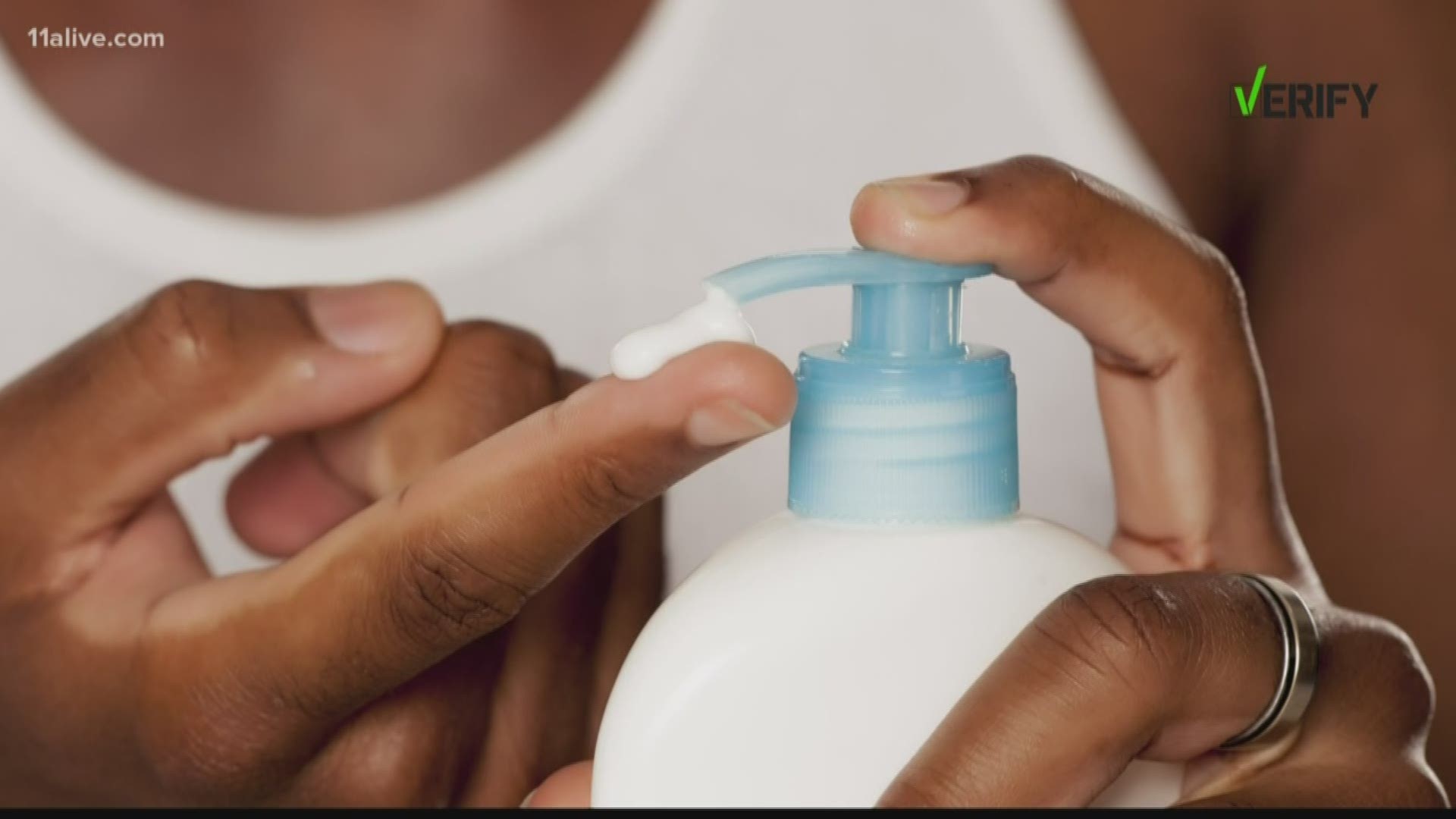ATLANTA — Experts maintain that washing hands is one of the first lines of defense against the coronavirus, and if soap and water are not available, the CDC recommends using an alcohol-based hand sanitizer.
As the demand for hand sanitizer continues, some on social media are claiming the use of such products can do more harm than good, claiming hand sanitizers can damage the pH levels in the skin making users more vulnerable to bacteria or a virus.
11Alive is focusing our news coverage on the facts and not the fear around the virus. We want to keep you informed about the latest developments while ensuring that we deliver confirmed, factual information.
The posts below are just some messages the Verify team found on Twitter.
11Alive's Verify team decided to fact-check such claims, turning to Dr. Carrie Kovarik, member of the American Academy of Dermatology and Associate Professor of Dermatology with the Perelman School of Medicine at the University of Pennsylvania.
"Skin pH is related to skin hydration," Dr. Kovarik said, "So any time you use an alcohol based sanitizer, you will be reducing your skin hydration and changing your pH."
As a result, we can verify the claim that hand sanitizer affects your skin's pH is true. However, Dr. Kovarik shared the similar measure to rectify the situation.
"It is important to moisturize to replace the hydration and balance the pH," she said. "For dry skin after washing, I would recommend a petrolatum/mineral oil based cream that is non-comedogenic, fragrance and dye free. The thick creams are best – one you squeeze out of a tube (rather than pump out of a bottle)."
Another reason to moisturize after you wash or sanitize? Dr. Kovarik said dry and cracked skin can let in bacteria and viruses, but she clarified that's usually skin viruses, such as herpes and warts, rather than coronavirus.
"It is possible to wash or sanitize your hands too often – using too much sanitizer can lead to dry and cracked skin which can let in bacteria," she said.
"Coronavirus does not infect people through cuts in the skin as far as we know – the main mode of transmission is through respiratory droplets produced when an infected person coughs or sneezes. These droplets can land in the mouths or noses of people who are nearby or possibly be inhaled into the lungs. It may be possible that a person can get COVID-19 by touching a surface or object that has the virus on it and then touching their own mouth, nose, or possibly their eyes, but this is not thought to be the main way the virus spreads," she added.
Dr. Kovarik reiterated the importance of using hand sanitizer when needed.
"It is important to balance its use with moisturization, but also to use it when its important," she said.
MORE CORONAVIRUS FACTS NOT FEAR

